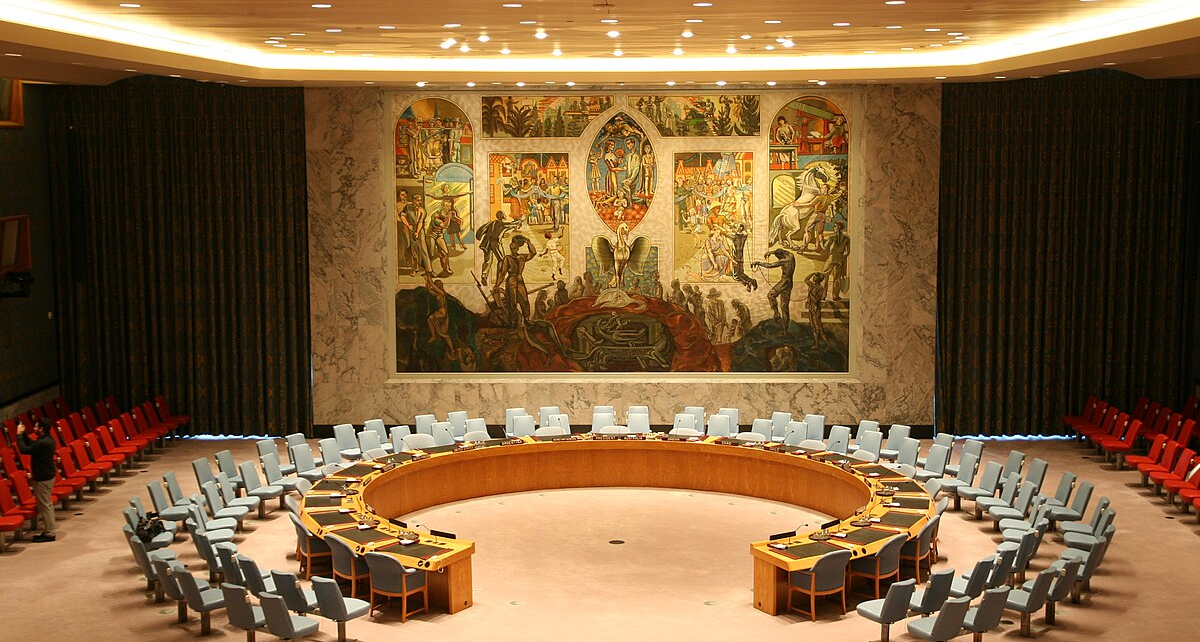Israel & The Middle East Before October 7, 2023
Israel is “likely” to normalize ties with Saudi Arabia in a deal that will “change the Middle East forever” and create “a corridor of energy pipelines, rail lines, fiber optic cables, between Asia through Saudi Arabia, Jordan, Israel, and the United Arab Emirates.” Benjamin Netanyahu spoke these words two weeks before the launch of Operation Al-Aqsa Flood by Hamas, a non-state terrorist organization, on October 7, 2023.
Saudi Arabia’s Crown Prince Bin Salman publicly indulged in similar sentiments around the same time, expressing his belief that Saudi Arabia “get[s] closer every day” towards normalization with Israel, as part of a deal which included Israel’s potential and unprecedented acceptance of civilian nuclear energy use by Saudi Arabia.
Throughout this process, Saudi officials continuously sought to reassure their Palestinian counterparts that they are not being abandoned or sold out, while on October 4, 2023, local media sources reported that Netanyahu was working to “limit” any Palestinian component to the deal, despite U.S. desires to the contrary.
Israeli media even noted that Netanyahu’s precarious domestic political position, contingent on a fragile coalition of far-right parties, prevented him from making any meaningful concessions (such as transferring control of the West Bank to the Palestinian Authority or halting illegal Israeli settlement activity) that the Arabs needed to advance discussions on the Palestinian issue as part of normalization talks.
The American outlook for the region was described in traditionally optimistic terms, and Biden’s National Security Advisor (now) infamously stated a week before October 7 that “the Middle East region is quieter today than it has been in two decades.” Only days before the Hamas attack, Washington was still focused on diplomatic negotiations in support of normalization with senior American officials holding talks in Riyadh and Tel Aviv.
These efforts were framed as part of the Biden Doctrine announced earlier this year, ostensibly intended to guide American engagement in the Middle East, and were occurring at a time when America’s involvement and influence in the region was perceived to be on the wane.
This decline is best symbolized by the way in which China usurped America’s traditional post-World War II role as the region’s diplomatic mediator when it brokered a rapprochement between Iran and Saudi Arabia, announced in March 2023, to the surprise of many in the West. This was notably framed by some in America as the dawn of a “new order” in the Middle East.
Statements like those by Iran’s Foreign Minister expressing “gratitude to China for the constructive role it played in promoting the normalization of relations between Iran and Saudi Arabia,” were certainly not welcomed by those in America who lamented that the “Chinese capitalized on U.S. disengagement,” although others had no qualms with “de-escalation between Saudi Arabia and Iran,” even if it was driven by China.
Iran is understandably wary of any signs of normalization among its rivals, particularly if normalization is being sponsored by American diplomacy. An American-leaning Middle Eastern bloc of countries empowered by Saudi Arabian energy resources and Israel’s high-tech and scientific industries would represent the effective end of Iran’s political, economic, and territorial expansion across Lebanon, Iraq, Syria, Yemen and Palestine. Others observe that normalization would create a “chain of American allies linking three key choke points of global trade—the Suez Canal, the Strait of Hormuz, and the Bab Al Mandeb connecting the Red Sea to the Arabian Sea.”
Normalized ties between Saudi Arabia and Israel would significantly tilt the balance of power in the region against Iran. For the Iranian regime and the many groups it is politically affiliated with and financially and militarily supportive of across the region, this outcome is simply unacceptable.
The Geopolitics of Operation Swords of Iron
One day after Operation Al-Aqsa Flood, the Wall Street Journal alone cited Hamas officials (who were not directly quoted) acknowledging the role of Iranian security officials that planned and ordered the attack by Hamas on the state of Israel.
Initial U.S. intelligence reports have described how Hamas’ attack caught Iranian officials by surprise, as they were unaware of details surrounding the attack. These reports also note that the intelligence community is not ready to definitivetly attribute the attack to Iran, notwithstanding Iran’s longstanding, well-known military and financial support for Hamas.
Israel and the United States have accordingly refrained from assigning the responsibility for Hamas’ surprise attack to Iran, which was quick to deny any role in the planning or execution of the attack. Perhaps U.S. officials believed blaming Iran without irrefutable evidence would further increase the risk of a broader regional conflict and accordingly influenced their Israeli counterparts to also refrain from attributing responsibility to Iran.
One week after the attack, a video of the Iranian Foreign Minister warmly embracing a top Hamas leader in Qatar started going viral. On the same day, sources informed journalists that Saudi Arabia had suspended normalization talks with Israel.
Fears of an escalating conflict that spills over into a broader regional conflagration were evident immediately after the attack, as Washington sought to quickly communicate to key regional actors (Iran, Egypt, Saudi Arabia, Turkey, Qatar, UAE, Jordan) that they should refrain from escalation or involvement in the war between Hamas and Israel. It dispatched two aircraft carriers to the Eastern Mediterranean in an act designed to deter further Iranian involvement, along with additional defense systems like THAAD and Patriot systems.
Iran has repeatedly stated since the start of the conflict that if the Israelis “do not cease their atrocities in Gaza, Iran cannot simply remain an observer,” while Biden has currently ruled out placing U.S. troops on the ground even as U.S. forces are being targeted from Iraq to Syria in a spate of renewed attacks against Americans across the region, which primarily stem from local perceptions of America’s unequivocal support for Israel.
Israel, the IRGC, and Hezbollah have all already deployed forces to Syria’s southwestern border, and Israeli officials at the highest levels have signaled their readiness for a war on two fronts, as at the time of this writing, daily border rocket exchanges between Israel and Hezbollah have reached levels of intensity not seen since 2006.
In a portentous sign, Israel already vacated its own citizens that reside near Lebanese border towns and the U.S. State Department urged its citizens to leave Lebanon “as soon as possible.” Canada is preparing its own military evacuations from Lebanon, as both Israel and Hezbollah incur greater military and civilian casualties with each passing day on the northern front, where escalation seems inevitable following a ground invasion of Gaza.
Reports say the Israelis have delayed the offensive due to U.S. pressure to continue hostage negotiations before the start of a ground offensive. However, it is unclear how much longer Hezbollah can ramp up rocket fire and rhetoric before the IDF determines it has formally joined Hamas and proceeds to “wipe it off the face off the earth” in a significant expansion of the conflict.
While the United States provided Israel with immediate and putatively “unconditional” support, which generally enables it to exert a greater degree of leverage over Israeli decision-making at the outset of a conflict, Arab states in the region, whose leaders cancelled a planned meeting with Biden in Amman last week, have sought to make clear there is a price to pay for supporting Israel (historically-minded readers will recall how similar dynamics resulted in the 1973 oil embargo by OPEC following the U.S. resupply of Israel during the 1973 Yom Kippur War).
America’s unqualified support of Israel following Operation Swords of Iron (which included cutting off Gaza’s supply of food, water, medicine, and electricity) is best symbolized by the United States’ veto of last week’s U.N. resolution – which called for a ceasefire on humanitarian grounds – because it did not include a sentence that explicitly acknowledged Israel’s right to self-defence, the legitimacy of which has not been disputed by members of the international community.
Official statements like those by the IDF that confirm that “the emphasis [of Operation Swords of Iron] is on damage and not on accuracy,” or the Defence Minister’s fulmination that “we are fighting human animals and we act accordingly” have also gone largely unchecked by Israel’s allies.
Gaza’s soaring civilian death toll due to the indiscriminate Israeli bombing to date has recently resulted in a nuanced shift in rhetoric from E.U. leaders, who now note that Israel must conduct its legitimate right to self-defence “within the framework of international law.”
These mild reactions have aggravated emotions across Arab populations, resulting in significant pro-Palestinian demonstrations in key countries like Egypt and Jordan. Protests in Arab countries generate substantial pressures that constrain the ability of Arab leaders to diplomatically support the outcome of any U.S.-sponsored peace negotiations with Israel.
A bipartisan delegation of American senators is expected to travel to the Middle East in an attempt to revive the normalization talks between Israel and Saudi Arabia, but the chances for success in the near term are low. Before October 7, political leaders in the Middle East, excluding those from Iran, were largely receptive to the normalization of ties with Israel and clearly comfortable discussing progress publicly. Arab leaders today will have a hard time justifying normalization to their incensed publics, even in the unlikely event a ceasefire takes place and Israel foregoes a ground invasion of Gaza.
Nevertheless, the difficulties of achieving substantive progress on peace talks in the absence of American-sponsored diplomacy were evident during last weekend’s Cairo peace summit (not attended by senior American, Israeli, or Iranian officials).
If America seeks to reassert itself as the region’s chief diplomatic broker, it must strike a better balance between supporting Israel’s legitimate right to self-defence within the framework of international law and the basic human rights of Palestinian civilians in Gaza.
China, by contrast, has sharpened its criticism of Israel, as its Foreign Minister remarked that Israel’s actions have “gone beyond the scope of self-defence,” while Netanyahu’s relations with Putin suffered irreparable harm after Putin compared Israel’s siege of Gaza with Nazi actions during the siege of Leningrad.
China, in particular, has sought to take diplomatic advantage of the conflict by portraying itself as a champion of the Global South, and it seems most interested in building a coalition of resistance against U.S. diplomatic efforts to support Israel. It is still unclear what broader impact this diplomatic campaign to negatively portray the United States will have as it seeks, alongside its NATO allies, to rally the support of the Global South for Ukraine in its war against Russia.
A recent Chinese statement notes that “China is ready to maintain communication and coordination with Russia to promote de-escalation of the situation.” The statement avers “the fundamental reason for the current situation of the Palestine-Israel conflict is that the Palestinian people’s lawful national rights have not been guaranteed.” This follows Putin’s visit to China last week to reaffirm Russia’s “no limit” partnership with Beijing as part of the 10th anniversary of Xi’s signature Belt and Road Initiative, which to date involves over 150 countries.
Although both sides were less clear on what their reaction would be if the conflict expands, they recognize, as does America, the need to avoid inadvertent or calculated escalation by all parties.
Israel’s New Security Regime:
A United Nations report has called Gaza an “open-air prison,” which, at the time of writing, Israeli forces are on the verge of invading by ground to achieve their objective of annihilating Hamas. Israeli officials have sought to frame the attacks of October 7 as Israel’s 9/11, and Israeli leaders, in a “never again” state of mind, have labelled Hamas as the “new Nazis.”
On October 20th, Israel’s Defence Minister announced the creation of a new “security regime” for Gaza. He described a three phase plan to permanently eliminate the threat of Hamas. The first stage of the plan entails the destruction of Hamas’ military infrastructure and governmental capabilities via a military campaign that includes both ground and air forces. The second phase involves lower intensity fighting that will continue until Israel “eliminates pockets of resistance.” The third step, he said, “will be the creation of a new security regime in the Gaza Strip, the removal of Israel’s responsibility for day-to-day life in the Gaza Strip, and the creation of a new security reality for the citizens of Israel…where Israel will have complete freedom of action.”
These new details on Israel’s longer-term plans augur a conflict that will last many months, perhaps years, which Israel has consistently acknowledged. English philosopher John Locke contended that the illegitimate use of power by a ruling state authority that seeks to infringe the “unalterable law of self-preservation” enjoyed by a people will justify the legitimate resistance by a majority of individuals who are subject to that power. More recent political science literature that studies the relationship between oppression, resistance, and the state, gives further credence to Howard Zinn’s observation that “revolt is always an inch below the surface” for an oppressed people. This reality becomes a strategic consideration in military planning in a context where a majority of Palestinian civil society perceives that the two-state solution is no longer a practical aspiration because of violent Israeli settlement expansion activity (which even senior U.S. officials have denounced as “disturbing”).
Israeli officials admitted to their American counterparts that they have not yet, as of this writing, developed an exit strategy to avoid the pitfalls of asymmetrical urban warfare that plagued U.S. troops in Iraq and Afghanistan for two decades, and many believe that the total operational and ideological destruction of Hamas in Gaza may not be a realistic outcome. Gaza is a small strip of land with fewer operational challenges than Afghanistan or Iraq’s terrain but a third intifada lasting longer than the second will be difficult to avoid for Israel as it progresses through the three phases of its new security regime without an exit strategy. Biden has warned Netanyahu himself of America’s mistakes following 9/11 and advised that wartime leadership “requires clarity about the objectives and an honest assessment about whether the path you’re on will achieve those objectives.”
Egypt, at the time of this writing, has refused to accept any refugees from Gaza, and President Sisi is likely to continue his resolute rejection of the “forced displacement” of Palestinians, which he fears will undermine the already slim chances of a Palestinian state and possibly serve as a pretext for future Israeli incursions into Egyptian territory should terrorist elements like those from Hamas use the opportunity to expand their presence into the Sinai and attack Israel from there. Egyptians fears appeared reasonable after an Israeli tank hit an Egyptian border post resulting in casualties and an expression of sorrow from Israel for the “accident,” which was contained and diffused.
King Abdullah of Jordan has similarly declared the acceptance of Palestinian refugees as a “red line” because of his belief that “some of the usual suspects are trying to create facts on the ground.” This is a thinly veiled reference to widespread fears among Arab leaders of a modern-day “Nakba” where Israel takes over Gaza after it is deserted by Palestinians that have been ordered to flee.
Not proceeding with a ground invasion will represent a significant shift in Israeli planning at this point and may even be politically impossibile for Netanyahu. A ground offensive will exacerbate the humanitarian situation in Gaza as Gazans remain trapped (the latest IDF leaflets dropped over Gaza warn that any remaining Gazans will be treated as “partners of terrorists”). This will make it harder for the United States to sustain its support of Israel in a prolonged conflict.
Historians will recall that when America convened nations of the world at the Évian Conference in 1938 to find a home for German and Austrian Jewish refugees fleeing Nazi persecution, no country, including the United States, ultimately agreed to receive any Jewish refugees, including children. This meant that those Jews were trapped in their homeland and subject to the Nazis’ security regime and so-called Final Solution.
Lastly, while the future of Israel’s “open-air prison” may be in question, Netanyahu’s political future is not. Israelis will find it hard to forget that Operation Swords of Iron occurred in the aftermath of an incredible series of Israeli human intelligence (HUMINT) and signal intelligence (SIGINT) failures leading up to the attack that have already been analyzed, and additional reports have cited Egyptian officials who were ignored as they warned the Israelis days prior to the attack that “an explosion of a situation is coming, and very soon, and it would be big.”
These reports were dismissed as “fake news” by Netanyahu, who took over 70 hours to form an ad hoc war cabinet, which included Benny Gantz and other opposition party members, and officially address his nation following the attack. He was facing popularity ratings among Israelis that hovered at all-time lows (around 27%) right before the attack. Massive, weekly, unrelenting protests against Netanyahu had placed Israel on the brink of its largest constitutional crisis to date.
In 2020, Israeli media portrayed the signing of the Abraham Accords (representing the normalization of ties between Israel, Bahrain, and the UAE) as a domestic political coup for Netanyahu. This time around, more than two weeks after Operation Al-Aqsa Flood, polls suggest Israelis are turning on their government, not rallying around it, as approximately 80% of Israelis hold Netanyahu responsible for the Hamas attack and over 50% believe he should still step down.
Whether or not he ultimaltely accepts responsibility for the attacks (as his intelligence chiefs at the Shin Bet and Aman have already done), it seems unlikely Netanyahu will be able to salvage his political future, even as he stands on the cusp of being the Prime Minister who can finally claim to have united Israel with Gaza.
Photo: An empty United Nations Security Council chamber (2014), by MusikAnimal via Wikipedia Commons. Licensed under CC BY-SA 4.0.
Disclaimer: Any views or opinions expressed in articles are solely those of the authors and do not necessarily represent the views of the NATO Association of Canada.




